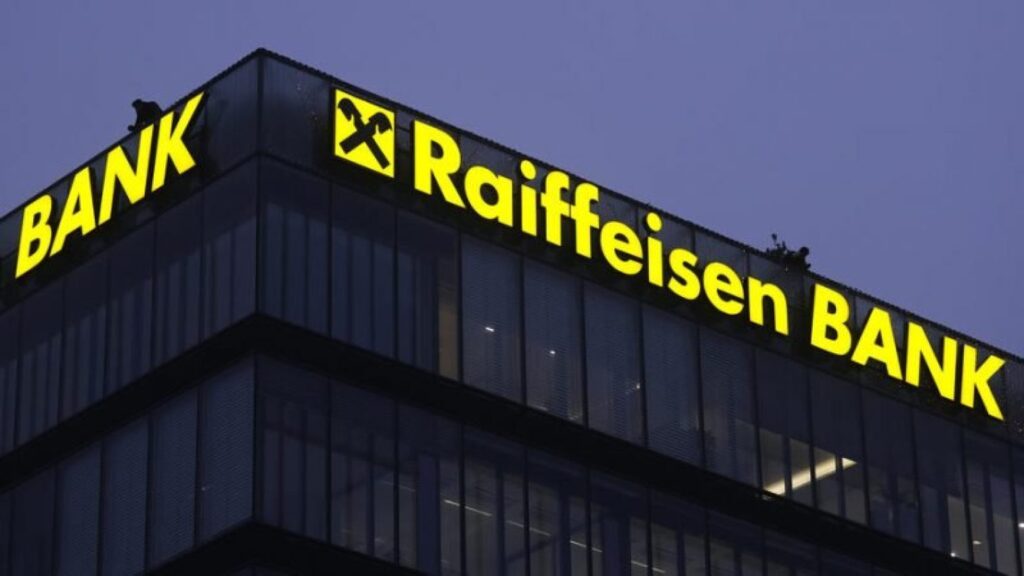A Russian court has frozen shares in Raiffeisen Bank International’s (RBI) local subsidiary, the largest Western bank operating in Russia announced on Thursday. This move effectively blocks the sale of the unit and intensifies the standoff between Moscow and Western financial institutions.

Austria-based RBI had previously committed to spinning off its Russian business, which serves as a crucial payment conduit for hundreds of companies in the country. The bank had come under pressure from international regulators to divest its Russian operations following the outbreak of war between Russia and Ukraine. However, more than two years into the conflict, little progress has been made toward this goal.
A spokesperson for Raiffeisen confirmed that the Russian court’s decision precludes a sale of the bank but emphasized that it would not impact the Russian subsidiary’s operations or efforts demanded by the European Central Bank to reduce its presence in the country. “We can still appoint management and give instructions to the Russians but we cannot sell the bank,” the spokesperson stated.
RBI has announced its intention to challenge the court decision, which represents the most significant asset freeze involving a Western bank in Russia to date. The bank’s Russian operations have become a litmus test for Western resolve to sever ties with Russia, given its substantial presence in the country. RBI serves approximately 2,600 corporate customers, 4 million local account holders, and employs 10,000 staff in Russia.
The freeze is reportedly linked to a recent claim by Russian investment holding company Rasperia against Strabag and its Austrian shareholders, including the Raiffeisen unit. However, the bank itself is not accused of any wrongdoing.
RBI’s Russian business has become increasingly profitable since the start of the Ukraine war in 2022, accounting for about half of the group’s profits in the first quarter of this year as fees on international payments spiked. This profitability has complicated efforts to divest from the country.
The European Central Bank has been pressuring RBI to reduce its Russian operations, reflecting broader Western efforts to isolate Russia economically. However, Russian authorities have made it clear that they wish for RBI to maintain its presence, as it facilitates international payments for millions of Russian customers.
This court decision comes in the wake of other complications for RBI, including an investigation by the U.S. Treasury’s Office of Foreign Assets Control into the bank’s Russian activities, which began in early 2023. The bank had also recently abandoned plans to acquire a stake in Vienna-based construction group Strabag from a company reportedly controlled by sanctioned Russian oligarch Oleg Deripaska, following pressure from Washington.
As the situation unfolds, it highlights the complex challenges Western financial institutions face in navigating the geopolitical tensions between Russia and the West, balancing regulatory pressures, economic interests, and the practical realities of operating in a sanctioned environment.
Reuters



